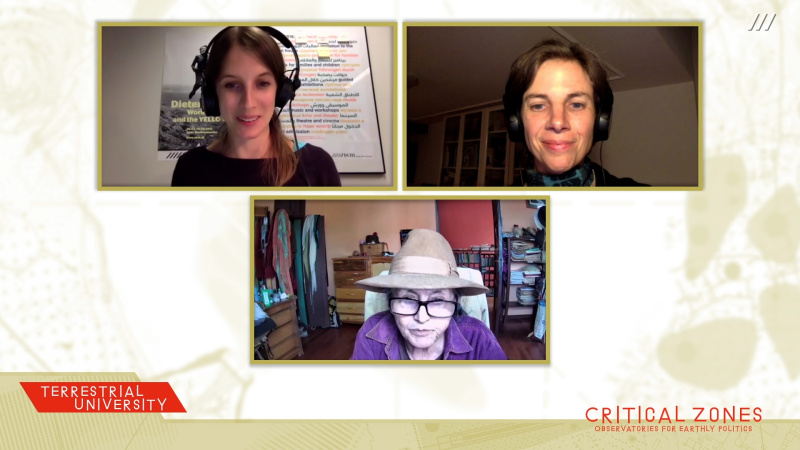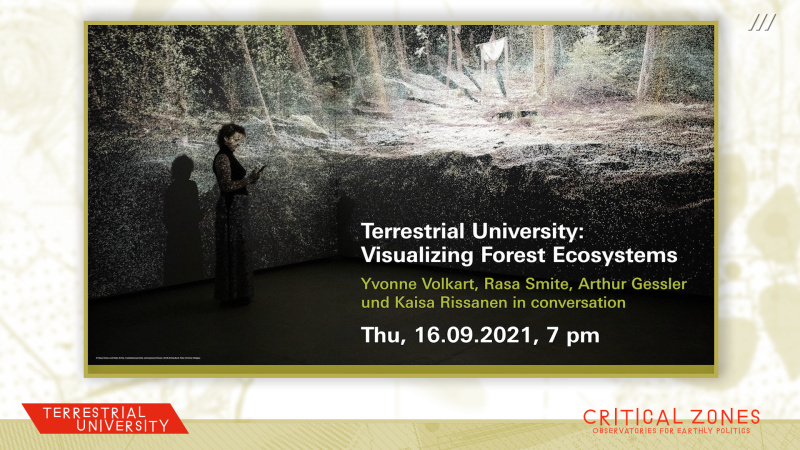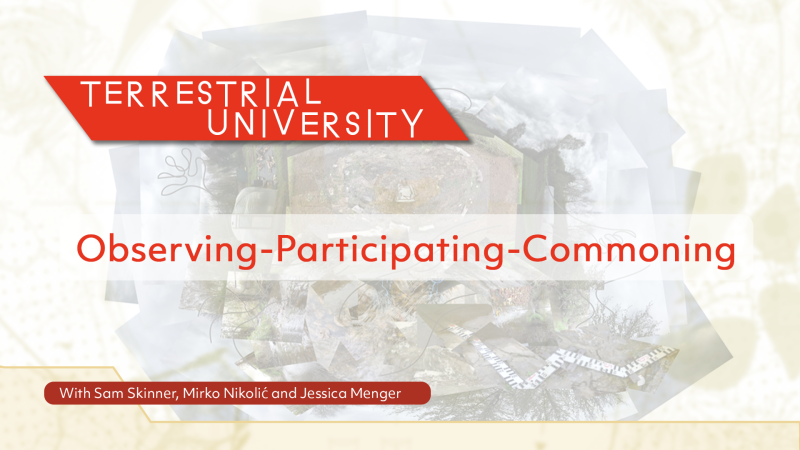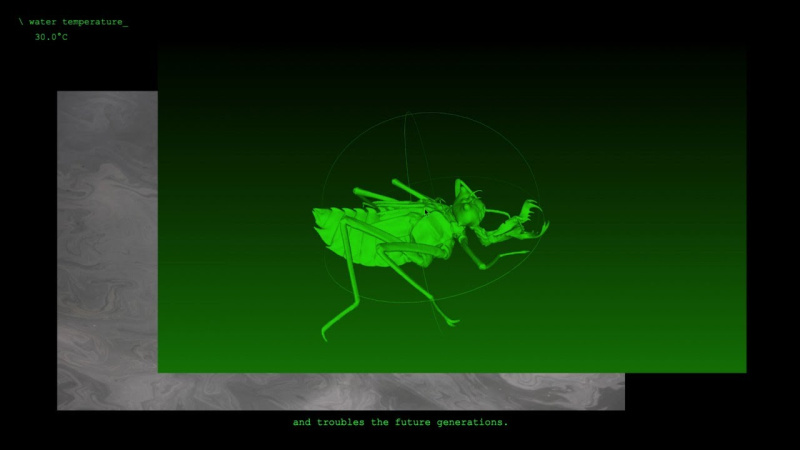Terrestrial University: Every Plant has a Story (to tell)
Uriel Orlow, Lili Carr, and Peter Nick in conversation
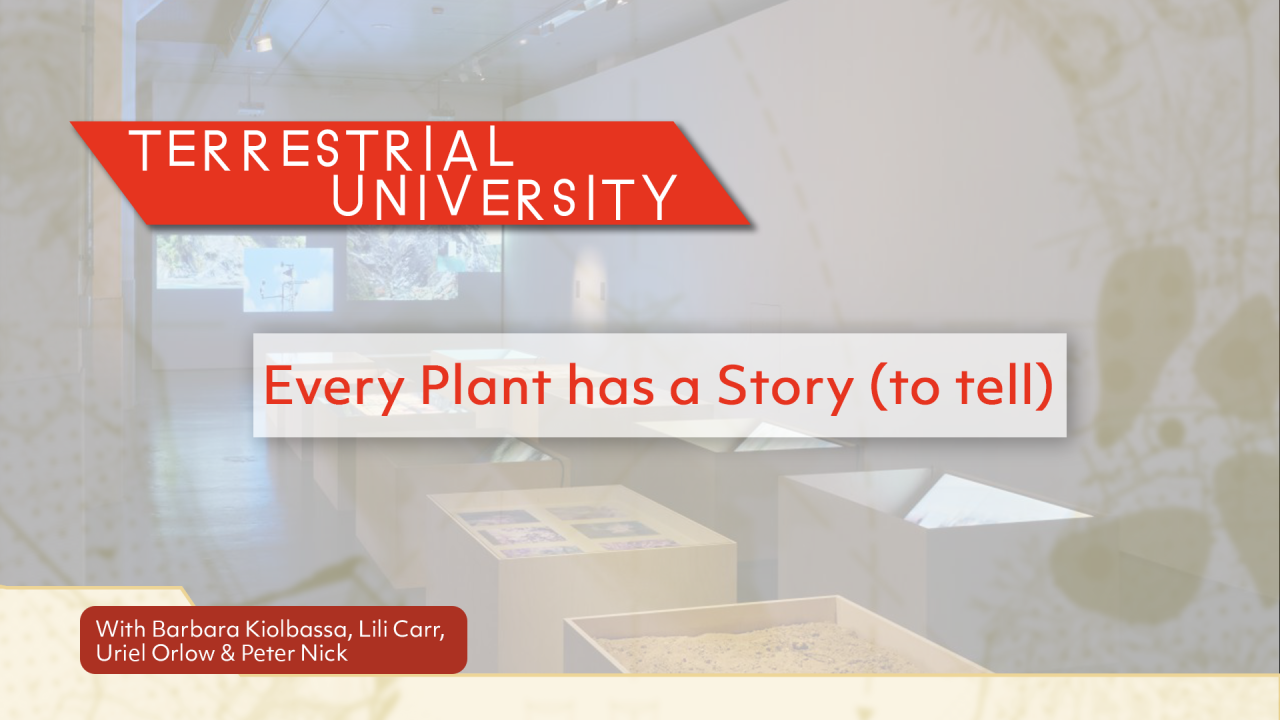
- Year
- 2020
- Date
- Duration
- 1:28:30
Description
If we want to understand the Critical Zone, we should listen to its inhabitants – including those who often do not get a chance to »speak«: plants. What can we learn from them?
The fact that plants, unlike humans, animals, insects or bacteria, cannot move around does not mean that they just vegetate. They live, strive, perceive, communicate, and: tell stories.
In this way, plants can also tell us something about our history, as Uriel Orlow's work shows. His installation »Soil Affinities« makes visible the links between agriculturally used plants and colonial history. Here, plants become a compass that points to historical and contemporary (post-)colonial relationships.
As an architect and member of the Feral Atlas Collective, Lili Carr is concerned with the non-designed effects of human-made infrastructures on the natural environment, among other things, and how alternative models of architecture can incorporate them. She has also presented the »Feral Atlas« project at the Driving the Human Festival.
As an expert in molecular cell biology at the KIT Botanical Institute, Prof. Dr. Peter Nick wants to understand how plants manage to adapt so masterfully to their environment in order to survive, and what insights this can give us for a sustainable way of life.
